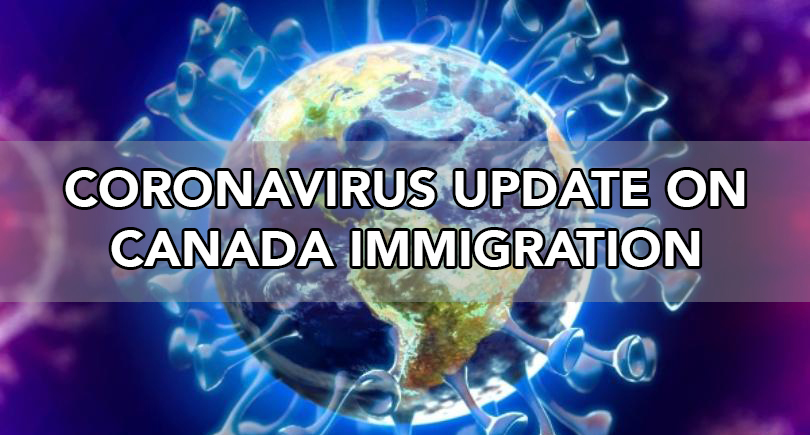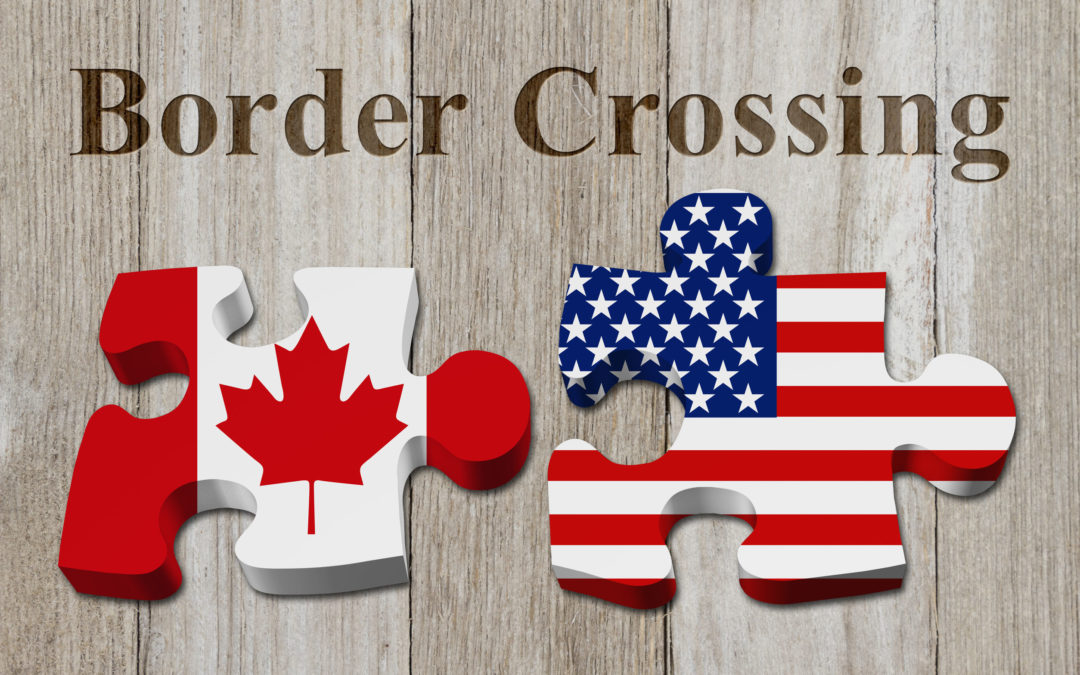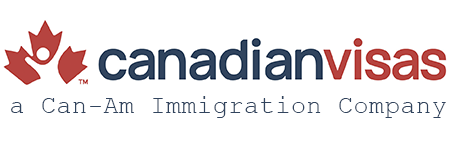
Mar 23, 2020 | Featured, Immigration, In the News, Policies and Problems
The Canadian government has now provided more information on the travel and border restrictions in light of the Coronavirus spread. On March 17, 2020 the Canadian border was closed to non-essential travel with some limited exemptions. To safeguard Canadian businesses and to ensure the proper flow of the supply chain in the country, Canada has made some additional exemptions to the standard immigration rules and regulations. Canada is yet to announce the date on which these specific exemptions take effect. We strongly suggest anyone with questions or concerns to call our offices to speak with our representatives.
WORKERS, STUDENTS & PERMANENT RESIDENTS
- all temporary foreign workers, including caregivers
- international students who hold a valid study permit or had been approved for a study permit when the travel restriction took effect on March 18, 2020. Those approved after this date are not exempt and should not travel to Canada.
- those who applied for permanent residence and who have been approved prior to the travel restrictions announced on March 16, 2020 but who have not yet travelled to Canada.
EXTENSIONS ON SOME WORK PERMITS
Individuals who hold a valid work permit in a low skill position will be able to extend their work permits for an additional (1) year. An application for an extension must be filed using the IRCC online application system.
ONLY 4 CANADIAN AIRPORTS OPEN
On March 18, 2020 the Canadian Prime Minister Justin Trudeau announced the closure of all Canadian airports with exception to the following four (4). All air travel, with exception to flights originating from the United States, Mexico, Caribbean, and St-Pierre and Miquelon will be routed to these airports to help with the containment of the COVID-19 virus.
WHAT YOU SHOULD KNOW
- Immigration Canada has cancelled all inland landing interviews and will conduct interviews by phone. You will be contacted by IRCC if you had a scheduled landing interview.
- Biometrics offices are closed and are not providing services at this time. If you received a request to complete the step of biometrics, you will automatically be given 90 days to complete this step.
- Flag-polling is not permitted and is not encouraged.
- IELTS and CELPIP in-Canada testing centres are currently closed until further notice.
Our offices will remain open and we will continue to provide updates as necessary. We hope that you and your family stay safe during this difficult and unprecedented time.

Mar 20, 2020 | Featured, In the News, New Laws, Policies and Problems
The last few days have been a whirlwind and we know many of you are worried about the processing of your applications, reuniting with family, or returning to Canada. We want to assure you that you are not alone. Can-Am Immigration and our staff are here to provide you with the most up-to-date information pertaining to the Coronavirus as it relates to Canada Immigration, applications, and entry into the country.
CANADIAN BORDER CLOSED
As of March 17, 2020, the Canadian border is closed to non-Canadian citizens. Travel to Canada is limited to citizens, permanent residents, immediate family members and essential travel only. On March 18, 2020, the Canadian and United States border was also closed to non-essential travelers. This means that only Canadian citizens or permanent residents can travel from the United States to Canada. Travel for business or trade purposes is still allowed.
AIR TRAVEL LIMITED
To prevent the spread of the Coronavirus, airline companies are instructed not to allow anyone to board an aircraft if they are showing any signs of symptoms of COVID-19. Those individuals who believe they may be infected should not travel and should not take their chances to board an aircraft at this time.
ONLY 4 CANADIAN AIRPORTS OPEN
On March 18, 2020 the Canadian Prime Minister Justin Trudeau announced the closure of all Canadian airports with exception to the following four (4). All air travel, with exception to flights originating from the United States, Mexico, Caribbean, and St-Pierre and Miquelon will be routed to these airports to help with the containment of the COVID-19 virus.
WHAT YOU SHOULD KNOW
- Immigration Canada has cancelled all inland landing interviews and will conduct interviews by phone. You will be contacted by IRCC if you had a scheduled landing interview.
- Biometrics offices are closed and are not providing services at this time. If you received a request to complete the step of biometrics, you will automatically be given 90 days to complete this step.
- Flag-polling is not permitted and is not encouraged.
- IELTS and CELPIP in-Canada testing centres are currently closed until further notice.
Our offices will remain open and we will continue to provide updates as necessary. We hope that you and your family stay safe during this difficult and unprecedented time.

Mar 29, 2017 | In the News, Policies and Problems, Tourist Visas, Why you need an immigration specialist
Many people were concerned about being turned down at the U.S./Canada border, as a result of U.S. president Donald Trump’s immigration policy. However, new information now shows that less people are being refused entry to the United States from Canada since last year. U.S. government statistics now show that the total number of Canadians refused entry between October 2016 to the end of February 2017 has dropped from the same time period last year (Oct 2015 – Feb. 2016). The number of Canadians refused entry is 8.5 percent lower than last year – down from 7,619 to 6,875. We also note that the number of Canadians attempting to cross the border decreased by about 180,000 people since last year.
It is possible that these numbers do not accurately explain the situation. Perhaps people are simply preparing better before they attempt to cross the border. Many people are hiring immigration attorneys and consultants to prepare their applications for them. Instead of just going to the border unprepared, people are now more cautious about the possibility of being denied entry. Additionally, the fact that much fewer attempts have been made to cross the border might suggest that people are just deciding to stay home rather than risk being refused entry. Several groups, including Toronto District Schoolboard – have decided to cancel all future trips to the U.S. to avoid problems at the border. Being refused entry is not the only concern among these groups as some people are being detained and having to undergo invasive searches when attempting to cross the border.
Canadians looking to cross the border into the U.S. may want to be prepared for possible issues and prevent these by communicating with a knowledgeable immigration consultant. We can verify that you meet all the requirements to enter the United States and help you prepare all the necessary documentation in order to avoid refusal or detainment at the border.
May 3, 2013 | Immigrate to Canada, Immigration, New Immigration Programs, New Laws, Permanent Residency, Policies and Problems, Skilled Workers
The Federal Skilled Worker Program, one of Canada’s most sought-after immigration options, is now being re-opened to allow foreign workers, in 24 qualifying applications, to apply for immigration to Canada. This program, which allows immigrants to apply for permanent residence based on a points system, was closed to anyone that did not have a job offer or meet the criteria of the Ph.D. stream since July 1, 2012. New applications for the Federal Skilled Worker Program will be accepted by Citizenship and Immigration Canada (CIC) beginning on May 4, 2013.
With the re-opening of the Federal Skilled Worker Program comes a new set of rules and requirements. Professionals who wish to apply for Canada immigration through the new Federal Skilled Worker Program must be sure that they meet the new criteria. Do not assume that you qualify now just because you may have qualified in the past. The points system that was previously in place has been amended to put more emphasis on language and age. But before you can assess your points, you must be sure that you fit into one of the following categories of the new Federal Skilled Worker Program:
- You are working in one of the 24 eligible occupations for a minimum of one (1) year;
- You have a job offer from a Canadian Employer;
- You are eligible to apply under the Ph.D. stream.
If you meet the criteria for one of these three options, you will then be required to meet the minimum eligibility requirements of the Federal Skilled Worker Program. Your eligibility will be assessed based on your language abilities, age, education, work experience, arranged employment, and adaptability. Points are awarded in each category with a maximum of 100 points available and a minimum of 67 points required in order to qualify for the program.
Another major update of the Federal Skilled Worker Program is in the way the points are assessed. With the new emphasis being on language and age, some people who qualified under the old Federal Skilled Worker Program may not qualify for the new program.
Research has shown that individuals adapt better in Canada if they are proficient in at least one of the country’s two official languages – English and French. As such, more points are now being awarded for language (the same is true for age as younger people have shown better adaptability as well as having more years to be in the workforce). In order to qualify for the Federal Skilled Worker Program, you must be able to prove your proficiency in one of the two languages. To do this, you must take and pass one of the following language tests:
- Canadian English Language Proficiency Index Program (CELPIP)
- International English Language Testing System (IELTS)
- Test d’évaluation de français (TEF)
Each test will assess your language skills in reading, listening, speaking, and writing. You must obtain the required score for one of these tests in order to apply for immigration through the Federal Skilled Worker Program.
In addition to language skills, your education will be assessed using the new Educational Credential Assessment (ECA). If you wish to apply for the Federal Skilled Worker Program using educational credentials from an institution outside of Canada, you will be required to get an ECA. This process will assess that the foreign education you have is equivalent to the required education in Canada for your field of work. For example; if you are an engineer with an engineering degree from a foreign institution, your foreign engineering degree would have to be equivalent to the Canadian engineering degree in order for you to work as an engineer in Canada. In some countries, less education may be required for certain occupations. Therefore, you may be ineligible based on your education if you do not meet the minimum requirement for your occupation in Canada. Confused? You don’t have to be. Contact our office to speak to a qualified immigration consultant who can help you to understand the new system and determine whether you qualify to apply for the new Federal Skilled Worker Program.
For those applicants who are eager to get started, you may get a jump-start on your Federal Skilled Worker application by starting the process of getting an ECA now, as long as you meet all of the other requirements of the Federal Skilled Worker Program. CIC has designated organizations which can provide ECA reports for immigration purposes. If you would like to get started on this process and/or just get an idea of how your foreign credentials will be recognized in Canada, contact us today to get started. Our immigration consultants can assist you in obtaining an ECA and preparing your file early so that your application is ready to submit when the program opens. It is important to note that application forms for the Federal Skilled Worker Program will be updated upon the opening of the program so having an immigration consultant working on your case will prevent you from submitting outdated or incorrect forms.
Applicants for the Federal Skilled Worker Program should also note the cap of 5,000 applications – including a maximum of 300 applications for each of the 24 eligible occupations. With this cap in place, you do not want to risk having your application returned over a small clerical error as you may not have another chance to submit your application. With the CIC cracking down on even the tiniest of errors (not to mention large errors or missing information), it is always a good idea to have more than one pair of eyes reviewing your application. More than just another pair of eyes, our immigration consultants have a trained eye for even the most minute details. We have years of experience in dealing with these types of applications and the constant changes of the immigration system. With an immigration consultant by your side, you can rest assured that your application will be completed accurately and efficiently so that your time and money do not go to waste on a returned or refused application.
Don’t miss this opportunity to obtain your permanent residence in Canada. Applications are already being submitted and the doors may close on you if you do not act quickly. Contact us to get started right away and be ready when the new Federal Skilled Worker Program opens.



 Useful Resources for Canada
Useful Resources for Canada
 Useful Resources for U.S.
Useful Resources for U.S.
 Our Local Immigration Services
Our Local Immigration Services